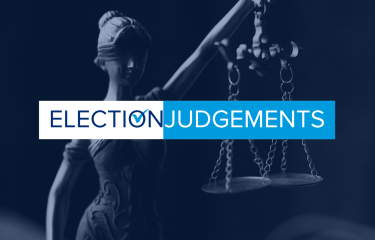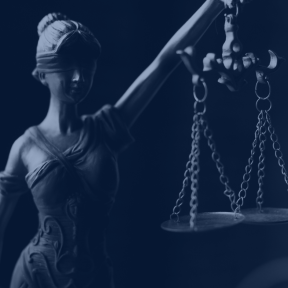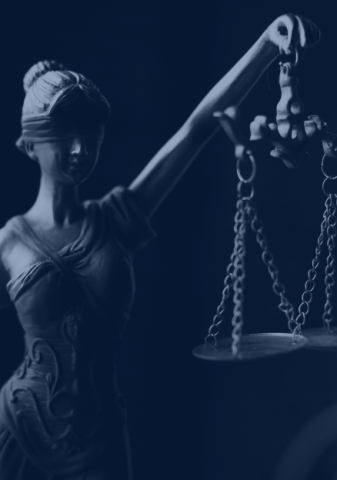
Applicable Principles and International Standards
International Human Rights: Freedom of Expression and Opinion
Disinformation can have serious consequences in undermining the right to free and fair elections. The broad disinformation campaign by foreign actors during the 2016 U.S. presidential elections, for instance, brought disinformation front and center for policymakers. Similarly, concerns around information integrity during the COVID-19 pandemic further illustrated the need for more robust frameworks for States to counter harmful information. For most States, the most significant legal discourse on this issue has been about balancing human rights around freedom of expression and opinion with restrictions on such actions to avoid harm to citizens and democratic processes.
The recent Report on Disinformation by the Special Rapporteur on Freedom of Opinion and Expression of the United Nations High Commissioner on Human Rights (UNHCR) provides a succinct overview of the current state of freedom of expression and gaps related to international standards in addressing the problem of “disinformation.” The two main international standards are the Universal Declaration of Human Rights and the International Covenant on Civil and Political Rights (ICCPR). As the UNHCR Special Rapporteur noted, “[t]he right to freedom of opinion and expression is not part of the problem. It is the objective and the means for combating disinformation.”
Article 19 of the Universal Declaration of Human Rights and Article 19 of the ICCPR both guarantee the rights to hold opinions without interference and to seek, receive and impart information and ideas of all kinds, regardless of frontiers and through any media. Freedom of opinion is absolute, but freedom of expression may be restricted under certain circumstances. States have both a duty to refrain from interfering with this right and an obligation to ensure that others, including businesses, also do not interfere with it. The United Nations Special Rapporteur on Freedom of Opinion and Expression notes that freedom of expression is fundamental to a functioning democracy, and human rights law has traditionally afforded strong protections in this area, especially in terms of criticism of government and political leaders and speech by politicians and public figures and in the media.
Regional instruments echo this balance. In Europe, Article 10 of the European Convention on Human Rights (ECHR) protects freedom of expression but allows for tailored restriction in defense of national security, territorial integrity or limiting hate speech. While we have not seen any cases at the European Court of Human Rights dealing with Article 10 and disinformation related to elections, there is important jurisprudence related to Article 10 and hate speech in elections, particularly where the internet is concerned. In Nikula v Finland, the court noted the special status of lawyers as intermediaries between the public and the courts and ruled that legitimate restrictions may be part of their professional codes of conduct, given the expectation of the members to “contribute to the proper administration of justice, and thus to maintain public confidence therein.”
In Central and South America, Article 13 of the American Convention on Human Rights expressly protects the right to freedom of thought and expression from censorship except when necessary to ensure “a. respect for the rights or reputations of others; or b. the protection of national security, public order, or public health or morals.” Similarly, in Africa, Article 9.2 of the African Charter on Human and Peoples’ Rights provides that “every individual shall have the right to express and disseminate his opinions within the law” [emphasis added].
Consensus has emerged at the international level that there are likely to be legitimate reasons to restrict the publication of materials that might be classed as disinformation and that existing human rights instruments have the space to accommodate the necessary balance around defending this right. As the case law in this paper shows, when confronted with the facts of specific cases, courts have been able to draw on some longstanding principles to navigate their way through the emerging phenomenon of disinformation in the Internet age.

Principles for How States Can Impose Restrictions on Freedom of Expression in Response to Fake News and Disinformation
On March 3, 2017, the United Nations Special Rapporteur on Freedom of Opinion and Expression, the Organization for Security and Co-operation in Europe Representative on Freedom of the Media, the Organization of American States Special Rapporteur on Freedom of Expression, and the African Commission on Human and Peoples’ Rights Special Rapporteur on Freedom of Expression and Access to Information acknowledged the threat of fake news dissemination and adopted a Joint Declaration on Freedom of Expression and “Fake News, Disinformation and Propaganda. It included the following general principles:
a. States may only impose restrictions on the right to freedom of expression in accordance with the test for such restrictions under international law, namely that they be provided for by law, serve one of the legitimate interests recognized under international law, and be necessary and proportionate to protect that interest.
b, Restrictions on freedom of expression may also be imposed, as long as they are consistent with the requirements noted in paragraph 1(a), to prohibit advocacy of hatred on protected grounds that constitutes incitement to violence, discrimination or hostility (in accordance with Article 20(2) of the International Covenant on Civil and Political Rights).
Timely, Effective and Proportional Remedies
IFES’s Election Investigations Guidebook analyzes how EMBs, electoral judges, and investigators may need to adapt their methods of fact-finding and analysis to clearly delineate the roles, responsibilities, and criteria used by those who receive complaints, conduct investigations, and make decisions on disinformation cases. IFES has identified six core principles of effective investigation that are useful in the context of disinformation cases (see text box).
Judges must balance implementing timely, effective, and proportional remedies to address disinformation cases with the common struggles surrounding these types of cases. Deterring future dishonest behavior is paramount and can be achieved successfully via such avenues as defamation lawsuits. However, judges also should consider:
- The timeliness of court cases, which often occur post-election, when disinformation campaigns have already taken place, and the harm has already been done.
- The difficulty in measuring the impact of post-election remedies on the election process.
- How to impose proportional remedies and sanctions on litigants and deter people from filing frivolous complaints.
As the case law in this paper will show, courts around the world have used a wide range of remedies available to them under the applicable law to address the harm (or potential for harm) caused by disinformation campaigns. The ability of courts to find practical solutions within short deadlines when cases with complex facts are brought before them is a significant finding from the case law analysis.

- Ensures that the letter and spirit of the law is realized in practice;
- Is provided in a timely manner;
- Is proportional to the violation or irregularity in question;
- Is enforceable;
- Leads to deterrence or a change in the behavior in question; and
- Reinforces the perception of fairness and credibility of the process.
Citations
See Dilanian, K. & Popken, B. (2019, June 5). Russian trolls who interfered in 2016 U.S. election also made ad money, report says. Nbcnews.com; ABC News (2016, December 15). Officials: Master Spy Vladimir Putin Now Directly Linked to US Hacking - ABC News. Go.com
OHCHR Special Rapporteur on freedom of opinion and expression (2021). Report on disinformation
Id. at p. 17.
Id. at p. 8.
See Application No 45581/15, Sanchez v. France 2023 E.C.R. The confluence of hate speech and freedom of expression is explored in significant legal jurisprudence and Article 4 of the ICCP on the “Elimination of All Forms of Racial Discrimination.” It is not the intention of this paper to repeat that analysis.
Application no. 31611/96, Nikula v Finland 2002 E.C.R. 12.
American Convention on Human Rights, Art. 13, November 22, 1969. Disinformation also cannot be used to promote propaganda for war or to advocate for national, racial or religious hatred that incites violence.
African Charter on Human and Peoples’ Rights, Art. 9.2., June 1981.
Vickery, C., and Ellena, K. (2020, December 17). Election Investigations Guidebook. International Foundation for Electoral Systems.
Ellena, K., and Vickery, C. (2016). Measuring Effective Remedies for Fraud and Administrative Malpractice. International Foundation for Electoral Systems.



